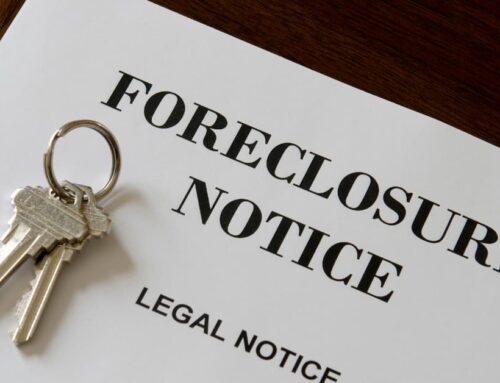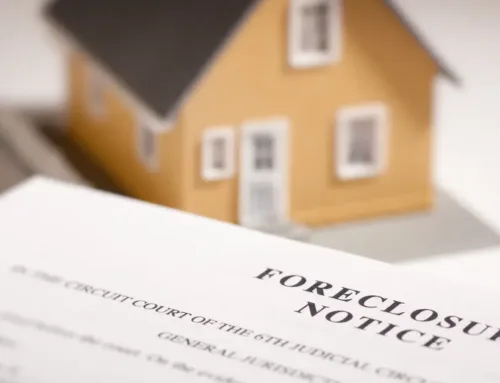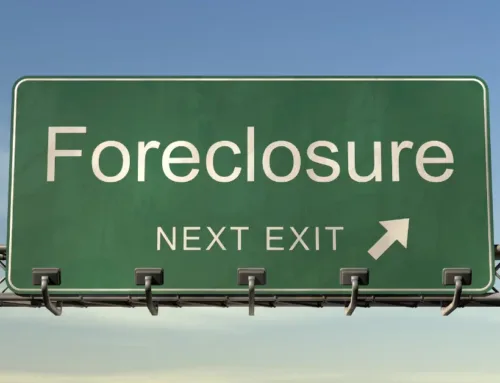Navigating the foreclosure process in Texas can feel overwhelming, whether you are a homeowner facing financial challenges or an investor exploring new opportunities. Texas has a unique legal framework for foreclosures, characterized by fast timelines and specific regulations that require a clear understanding to protect your interests.
As experienced real estate attorneys, we understand how important it is to have reliable and straightforward information during this critical time.
This complete guide will walk you through the foreclosure process in Texas, explain key legal requirements, and highlight recent market trends that influence the current landscape. Whether you are working to avoid foreclosure or looking to invest, this resource is designed to help you move forward with confidence.
Key Insights
- Texas primarily uses a non-judicial foreclosure process, allowing lenders to foreclose without court involvement under specific conditions.
- Homeowners receive two important notices, the Notice of Default and the Notice of Sale, with clear timelines to respond.
- Foreclosure sales are held publicly on the first Tuesday of each month at the county courthouse.
- Texas law provides key protections for homeowners, including strict notice requirements, the right to cure, and homestead protections.
- Foreclosure can severely impact a homeowner’s credit and finances, while also creating potential opportunities for cautious investors.
- Professional legal guidance can make a significant difference, helping homeowners protect their rights and investors minimize risks.
Understanding the Process of Foreclosures in Texas
Texas utilizes a non-judicial foreclosure process, as outlined in Section 51.002 of the Texas Property Code. This means that in most cases, lenders can foreclose on a property without going through the court system, provided certain conditions are met. This process is generally faster than judicial foreclosures seen in some other states, which underscores the importance of swift action for homeowners facing potential foreclosure.
The foreclosure process in Texas typically begins when a borrower defaults on their mortgage payments. While a single missed payment usually won’t trigger foreclosure proceedings, continued delinquency will eventually lead the lender to initiate the process. It’s important to note that communication from your lender about missed payments should be taken seriously, as it may be the first indication of impending foreclosure proceedings.
Once the lender decides to move forward with foreclosure, they must send a Notice of Default to the borrower. This notice is a crucial document in the foreclosure timeline, as it officially informs the borrower of the lender’s intent to foreclose and provides a final opportunity to cure the default. Texas law requires that borrowers be given at least 20 days from the date of this notice to bring their loan current by paying all past-due amounts and any associated fees.
If the borrower is unable to cure the default within the specified time frame, the lender can then proceed to the next step: issuing a Notice of Sale. This document must be provided to the borrower at least 21 days before the scheduled foreclosure sale. The notice must also be filed with the county clerk and posted at the county courthouse. These requirements are designed to ensure that borrowers have ample notice of the impending sale and can take any final actions to prevent foreclosure.
The culmination of the foreclosure process is the foreclosure sale, which in Texas occurs on the first Tuesday of the month at the county courthouse. These sales are public auctions, where the property is sold to the highest bidder. Often, the lender will “credit bid” up to the amount owed on the loan. If no other bidders exceed this amount, the lender will take possession of the property.
It’s crucial to understand that while these are the general steps in foreclosures in Texas, individual cases may vary based on specific circumstances and the terms of the mortgage agreement. This is why we at Kelly Legal Group always recommend consulting with a qualified attorney who can provide advice tailored to your unique situation.
Texas Foreclosure Laws: Protections for Homeowners
While the laws of foreclosures in Texas are often considered to be relatively lender-friendly due to the non-judicial process, they do provide several important protections for homeowners. Understanding these protections is crucial for anyone hoping to stop a foreclosure in Texas.
One of the most significant protections comes in the form of strict notice requirements. Texas law mandates that lenders provide clear, timely notices at various stages of the foreclosure process. The Notice of Default and the Notice of Sale, as mentioned earlier, are key documents that lenders must provide. These notices must contain specific information and be delivered in a prescribed manner. Failure to adhere to these requirements can potentially invalidate a foreclosure, which is why it’s crucial for homeowners to carefully review all documents received from their lender and seek legal advice if they believe proper procedures haven’t been followed.
Another important protection is the right to cure. Up until the day before the foreclosure sale, homeowners in Texas have the right to stop the foreclosure process by paying all past-due amounts plus any allowable fees. This right to cure provides a valuable last opportunity for homeowners who may have come into funds or worked out alternative arrangements to save their homes from foreclosure.
Texas also offers robust homestead protections, which can shield certain equity in a primary residence from creditors. While these protections generally don’t prevent foreclosure by a mortgage lender, they can be valuable in other financial distress scenarios and may influence strategies for dealing with multiple debts.
For military service members, additional protections are available under the Servicemembers Civil Relief Act (SCRA). This federal law can provide extra time and procedures for active duty military personnel facing foreclosure.
It’s also worth noting that under federal law, most lenders are required to work with borrowers to evaluate alternatives to foreclosure. This can include options like loan modifications, short sales, or deed-in-lieu of foreclosure arrangements. While lenders aren’t obligated to approve these alternatives, they must consider them in good faith.
These protections underscore the importance of being proactive and informed when facing potential foreclosure. At Kelly Legal Group, we work diligently to ensure our clients understand all the protections available to them and how to effectively assert their rights under Texas law.
Current Trends in Texas Foreclosures
The foreclosure landscape in Texas is continually evolving, influenced by a variety of economic and regulatory factors. While we can’t predict future trends with certainty, we can provide insights based on current data and observations.
In recent years, foreclosure rates in Texas have fluctuated. Some areas have seen increases, while others have remained relatively stable. These variations can often be attributed to local economic conditions, such as changes in major industries or shifts in population.
Several factors can influence foreclosure trends. Interest rates play a significant role, as increases can lead to higher monthly payments for homeowners with adjustable-rate mortgages. Employment rates are another crucial factor, as job losses can quickly lead to mortgage delinquencies. The overall health of the economy, including inflation rates and economic growth, also impacts foreclosure rates.
It’s important to note that foreclosure trends can vary significantly even within Texas. Urban areas may experience different trends compared to rural regions, and factors like local industry concentrations can create pockets of higher or lower foreclosure activity.
For the most up-to-date and localized information on foreclosure trends, we recommend consulting recent real estate market reports specific to your area. Local real estate associations, county records offices, and economic development organizations often provide valuable data on foreclosure activities.
At Kelly Legal Group, we stay informed about these trends as they can impact both homeowners at risk of foreclosure and investors considering foreclosed properties. Understanding the broader market context is crucial for developing effective strategies in foreclosure situations.
Impact of Foreclosures in Texas on Homeowners and Investors
Foreclosures can have profound and far-reaching impacts on both homeowners and investors. Understanding these potential consequences is crucial for anyone involved in or considering involvement in a foreclosure situation.
For homeowners, the most immediate and obvious impact of foreclosure is the potential loss of their home. This can lead to significant emotional stress and practical challenges in finding new housing. Beyond the loss of the property itself, foreclosure can have severe and long-lasting effects on a homeowner’s credit score. A foreclosure typically remains on a credit report for seven years, making it difficult to obtain new loans or credit during that time.
Homeowners may also face financial repercussions beyond the loss of their property. If the foreclosure sale doesn’t cover the outstanding loan balance, the lender may pursue a deficiency judgment. This means the homeowner could still owe money even after losing their home. However, it’s important to note that in Texas, lenders must file a separate lawsuit within two years to obtain a deficiency judgment.
The impact of foreclosure isn’t limited to individual homeowners. Neighborhoods with high foreclosure rates often see declining property values, which can affect even those homeowners who are current on their mortgages. This can create a cycle where declining values lead to more underwater mortgages and potentially more foreclosures.
For investors, foreclosures can present both opportunities and challenges. On the opportunity side, foreclosed properties can often be purchased below market value, potentially offering good returns on investment. This can be particularly attractive for investors looking to expand their real estate portfolios or enter the market at a lower price point.
However, investing in foreclosed properties also comes with risks. These properties may have been neglected or damaged, either by previous owners facing financial distress or through vacancy. This can lead to significant renovation costs. There may also be title issues or liens on the property that need to be resolved.
Furthermore, the foreclosure purchase process can be complex, particularly for those without experience in this area. Foreclosure auctions often require immediate payment, and there may be little or no opportunity to inspect the property beforehand. This underscores the importance of thorough due diligence and often the need for professional legal guidance.
The Importance of Legal Representation in Foreclosures in Texas
Given the complexities of foreclosures in Texas and the significant consequences involved, professional legal guidance is invaluable in navigating foreclosure situations. Whether you’re a homeowner facing potential foreclosure or an investor considering purchasing foreclosed properties, an experienced attorney can provide crucial assistance.
For homeowners, a knowledgeable foreclosure attorney can help in several ways. First and foremost, they can ensure you fully understand your rights under Texas law and explore all available options for avoiding foreclosure. This might include negotiating with the lender for a loan modification, exploring refinancing options, or considering alternatives like a short sale or deed in lieu of foreclosure.
An experienced attorney can also guide you through various foreclosure defense strategies that may be applicable to your situation.
An attorney can also review all documentation and communications from the lender to ensure that all legal requirements are being met. If there are any procedural errors or violations of your rights, an attorney can help you challenge the foreclosure process. In some cases, such challenges can buy valuable time to explore alternatives or even lead to the foreclosure being dismissed.
If bankruptcy might be an appropriate option, a foreclosure attorney can guide you through that process. While bankruptcy is a serious step with long-term consequences, in some situations, it can help homeowners keep their homes and reorganize their debts.
For investors, legal representation is equally important. An experienced attorney can help navigate the complexities of purchasing foreclosed properties, whether through auction or other means. This includes conducting thorough title searches to identify any potential issues, ensuring all legal requirements are met in the purchase process, and addressing any challenges that may arise with the property or its previous owners.
At Kelly Legal Group, we specialize in Texas real estate law, including all aspects of foreclosures. Our experienced attorneys are committed to providing personalized, effective legal strategies for each client’s unique situation. We understand that facing foreclosure or navigating the foreclosure market as an investor can be overwhelming, and we’re here to provide the guidance and representation you need to protect your interests.
Empowering Your Future: Navigate Texas Foreclosures with Confidence
Understanding foreclosures in Texas is crucial, whether you’re a homeowner facing potential foreclosure, post-foreclosure, or an investor considering opportunities in foreclosed properties. While this guide provides a comprehensive overview, it’s important to remember that every situation is unique and requires individual analysis.
The foreclosure process in Texas, while generally favorable to lenders due to its non-judicial nature, does provide important protections for homeowners. Understanding these protections, as well as the potential impacts of foreclosure, is key to navigating this challenging situation.
For investors, while foreclosed properties can offer opportunities, they also come with unique risks and complexities. Thorough due diligence and a clear understanding of the legal landscape are essential for successful investment in this area.
If you’re dealing with a foreclosure issue in Texas, remember that you don’t have to navigate this complex process alone. At Kelly Legal Group, we’re here to help. Our team of experienced real estate attorneys can provide the guidance and representation you need to protect your interests, whether you’re a homeowner seeking to avoid foreclosure or an investor looking to capitalize on opportunities in the market.
We encourage you to reach out to us to discuss your specific situation. Our commitment is to provide clear, practical legal advice tailored to your unique circumstances. With our expertise in Texas foreclosure law, we can help you understand your options and develop a strategy to achieve the best possible outcome.
Don’t let the complexity of foreclosures in Texas overwhelm you. Contact Kelly Legal Group today to schedule an appointment. Let us put our knowledge and experience to work for you, helping you navigate the challenges and opportunities presented by foreclosures in Texas.
Frequently Asked Questions About Foreclosures in Texas
How does foreclosure work in Texas?
In Texas, most foreclosures follow a non-judicial process, meaning lenders do not need court approval to foreclose on a property. After a borrower defaults, the lender must send a Notice of Default giving the borrower at least 20 days to cure the delinquency. If the default is not resolved, the lender issues a Notice of Sale at least 21 days before the foreclosure auction. The property is then sold at a public auction held on the first Tuesday of the month.
How many missed payments before foreclosure in Texas?
Typically, foreclosure proceedings in Texas can begin after a borrower misses three to six months of mortgage payments. However, the timeline can vary depending on the terms of the loan agreement and the lender’s policies. It is important to address any missed payments early to avoid escalation.
Is Texas a judicial foreclosure state?
No, Texas is primarily a non-judicial foreclosure state. Lenders can foreclose on a property without going through the court system if the deed of trust includes a power of sale clause, which most residential mortgages in Texas do.
How long does foreclosure take in Texas?
From the initial Notice of Default to the foreclosure sale, the process can take as little as 60 to 90 days. The foreclosure process in Texas can move quickly. However, the exact timing can vary based on the lender’s practices and the borrower’s actions during the process.
If your house is sold at auction, how long do you have to move in Texas?
After a foreclosure auction in Texas, the new owner must typically give the occupant a Notice to Vacate, which provides three days to move out. If the occupant does not leave, the new owner can initiate an eviction lawsuit, a process that can add several weeks depending on the court’s schedule.
How to purchase a foreclosed home in Texas?
To purchase a foreclosed home in Texas, you can attend foreclosure auctions, search bank-owned property listings, or work with a real estate agent who specializes in foreclosures. Buying at auction often requires immediate payment and carries risks such as limited inspection opportunities, so due diligence is essential.
How to buy foreclosed homes in Texas?
Foreclosed homes in Texas can be purchased through public auctions, directly from lenders after the foreclosure sale (known as REO properties), or via third-party platforms that list distressed properties. Buyers should conduct thorough research, inspect properties when possible, and consider working with an experienced attorney to navigate the legal complexities.






